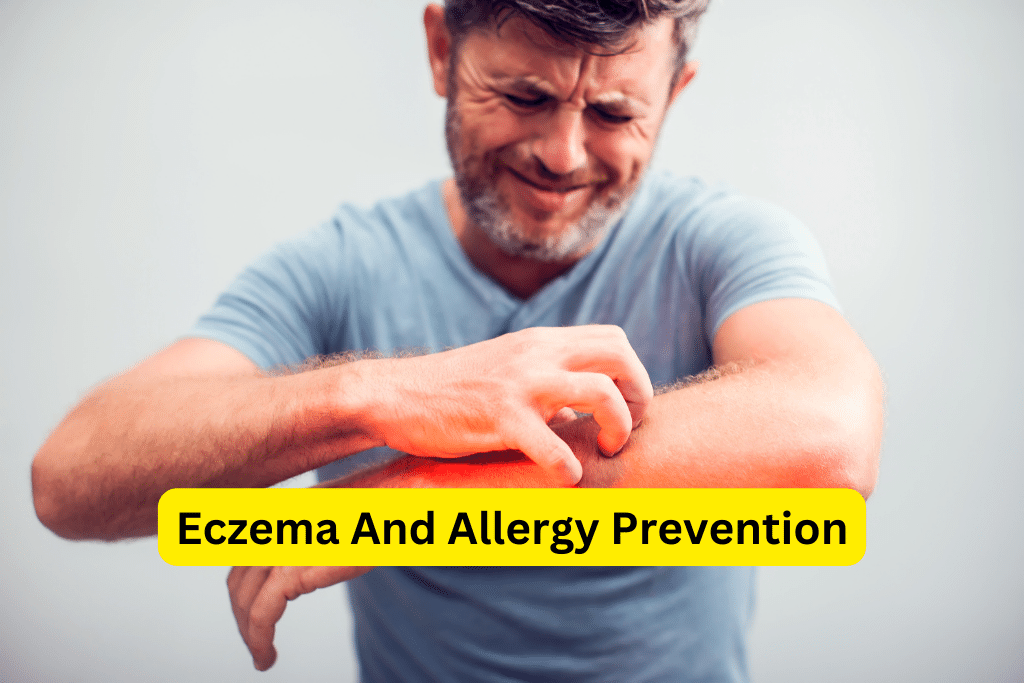Prevent Eczema and Allergies: Expert Tips and Natural Remedies
Eczema And Allergy Prevention
Eczema is a common skin condition characterized by red, itchy, and inflamed patches on the skin. It affects millions of people worldwide and can be a source of discomfort and frustration. Allergies, on the other hand, are immune reactions to specific substances that can trigger various symptoms, including eczema flare-ups. Preventing eczema and allergies is crucial in managing these conditions and improving overall well-being.
In this article, we will explore the causes of eczema, common allergy triggers, and effective strategies for prevention. We will also discuss essential skincare routines and lifestyle modifications that can help minimize symptoms and improve quality of life for those affected by eczema and allergies.
Understanding Eczema and Allergies
Eczema encompasses several types, including atopic dermatitis, contact dermatitis, and seborrheic dermatitis. Each type has its own set of triggers and symptoms. Allergies, on the other hand, can be caused by a wide range of substances, such as pollen, mold, dust mites, certain foods, and chemical irritants. Understanding the specific triggers for each individual is crucial in managing eczema and preventing allergy-induced flare-ups.
Common Allergy Triggers for Eczema Flare-ups
- Pollen and mold: These allergens are prevalent outdoors, especially during certain seasons, and can trigger eczema symptoms when inhaled or coming into contact with the skin.
- Dust mites: These microscopic creatures are commonly found in bedding, furniture, and carpets. Their waste products can trigger allergic reactions and eczema flare-ups.
- Pet dander: Pet allergens, including proteins found in the skin, saliva, and urine of animals, can cause eczema symptoms in susceptible individuals.
- Certain foods: Common food allergens, such as dairy, eggs, peanuts, and gluten, can trigger eczema flare-ups in some individuals.
- Chemical irritants: Harsh cleaning products, fragrances, and certain skincare ingredients can irritate the skin and worsen eczema symptoms in sensitive individuals.
In addition to these triggers, genetics also play a significant role in the development of eczema and allergies. Individuals with a family history of these conditions are more likely to be affected.
Strategies for Eczema and Allergy Prevention
Maintaining a Healthy Environment
Creating an allergen-free home is crucial in preventing eczema flare-ups. Regular cleaning routines, using hypoallergenic products, and ensuring effective ventilation and air filtration can help reduce allergens in the environment. Monitoring pollen levels and taking precautions during peak allergy seasons can also minimize exposure to outdoor allergens.
Identifying and Avoiding Triggers
Recognizing potential irritants and allergens is essential in preventing eczema flare-ups. Reading product labels for potential allergens and eliminating known triggers from the environment can help minimize exposure and reduce symptoms.
Proper Skincare and Hygiene Practices
Gentle cleansing routines, moisturizing techniques, and choosing suitable skincare products are vital in maintaining healthy skin and preventing eczema flare-ups. It is important to use mild, fragrance-free cleansers and moisturizers that are specifically formulated for sensitive skin.
Maintaining a Balanced Diet
The food we consume can also affect eczema symptoms. Identifying common food allergens and sensitivities can help in preventing flare-ups. Incorporating anti-inflammatory foods, such as fruits, vegetables, and omega-3 rich foods, into the diet can also help reduce inflammation and alleviate eczema symptoms. Staying hydrated is also important to maintain healthy skin.
Stress Management and Emotional Well-being
Stress is a common trigger for eczema flare-ups. Exploring stress-reducing techniques, such as exercise, meditation, and relaxation techniques, can help manage stress levels and prevent eczema symptoms. Seeking emotional support from friends, family, or support groups can also be beneficial in managing the emotional aspect of living with eczema.
Lifestyle Modifications for Eczema and Allergy Prevention
Clothing and Fabrics Choices
Choosing breathable materials, such as cotton and bamboo, can help prevent skin irritation and reduce the risk of eczema flare-ups. It is also important to avoid harsh fabrics, such as wool and synthetic materials, which can aggravate the skin.
Pesticide and Chemical Exposure
Reducing exposure to pesticides and harmful chemicals is crucial in preventing eczema flare-ups. Opting for organic and natural products, including cleaning supplies, personal care products, and laundry detergents, can minimize contact with potentially irritating substances.
Managing Pets and Animal Allergens
If pets are a trigger for eczema symptoms, proper pet grooming and hygiene practices should be followed. Regularly bathing and brushing pets can help reduce allergens in the environment. Creating pet-free zones in the house where allergic individuals can retreat can also minimize exposure.
Traveling with Eczema and Allergies
When traveling, it is important to be prepared for potential allergen exposure. This includes packing essential medication and skincare products to manage flare-ups while away from home.
Seeking Professional Help: Dermatologists and Allergists
In severe cases of eczema, seeking professional help from dermatologists and allergists is important. Dermatologists can provide customized treatment options and help manage eczema symptoms effectively. Allergists can offer consultations and perform allergy testing to identify specific triggers and develop personalized prevention strategies.
Routine check-ups and follow-ups with healthcare professionals are essential in managing eczema and allergies. They can provide guidance, monitor progress, and adjust treatment plans as needed.
Conclusion
Preventing eczema and allergies requires a multi-faceted approach, including maintaining a healthy environment, identifying and avoiding triggers, adopting proper skincare and hygiene practices, making lifestyle modifications, and seeking professional help when necessary. By implementing these strategies and incorporating natural remedies, individuals can effectively manage their conditions and enjoy improved quality of life.
It is essential to remember that everyone’s experience with eczema and allergies is unique, and what works for one person may not work for another. It may take time to find the right combination of strategies and treatments that work best for each individual. By staying proactive and seeking support, it is possible to prevent eczema flare-ups and reduce the impact of allergies on daily life.
"Have You Seen Mike Walden's new holistic acne System yet? It's called "Acne No More" I've read the whole thing (all 223 pages) and there's some great information in there about how to naturally and permanently eliminate your acne without drugs, creams or any kind of gimmicks. I highly recommend it - it's very honest and straightforward without all the hype and b.s. you see all over the net these days. Here's the website where you can get more information:
Click Here -->AcneNoMore









